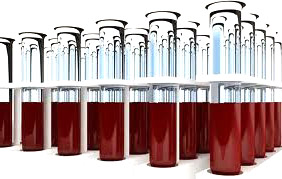Blood works understanding result
 Published: 21 May 2024
Published: 21 May 2024
Importance of Blood Tests
Blood, the primary circulating fluid in the body, plays crucial roles beyond circulation:
Diagnostic and Monitoring Functions:
* Blood tests detect harmful chemicals, toxins, and drugs, aiding in diagnosis and treatment.
* They determine physiological and biochemical states, such as disease, mineral levels, organ function, and drug effectiveness.
* Blood tests identify pathogens and monitor the presence of microorganisms in the body.
Regulatory Functions:
* Blood regulates the body's pH levels, ensuring proper cellular function.
* It helps maintain core body temperature, particularly in warm-blooded animals.
Test Procedures:
* Blood tests involve analyzing a sample drawn from a vein or finger-prick.
* Variations in chemical concentrations or proportions compared to standard values indicate potential health issues.
Preparation for Blood Tests:
* Follow specific instructions from a healthcare professional for test preparation, including fasting or food intake.
* Multiple blood tests may be required at specific intervals for accurate diagnosis and monitoring.
Research Applications:
* Pharmacogenomics utilizes blood test analysis to study the effects of trial drugs on genes and other elements of the body.
 Published: 21 May 2024
Published: 21 May 2024